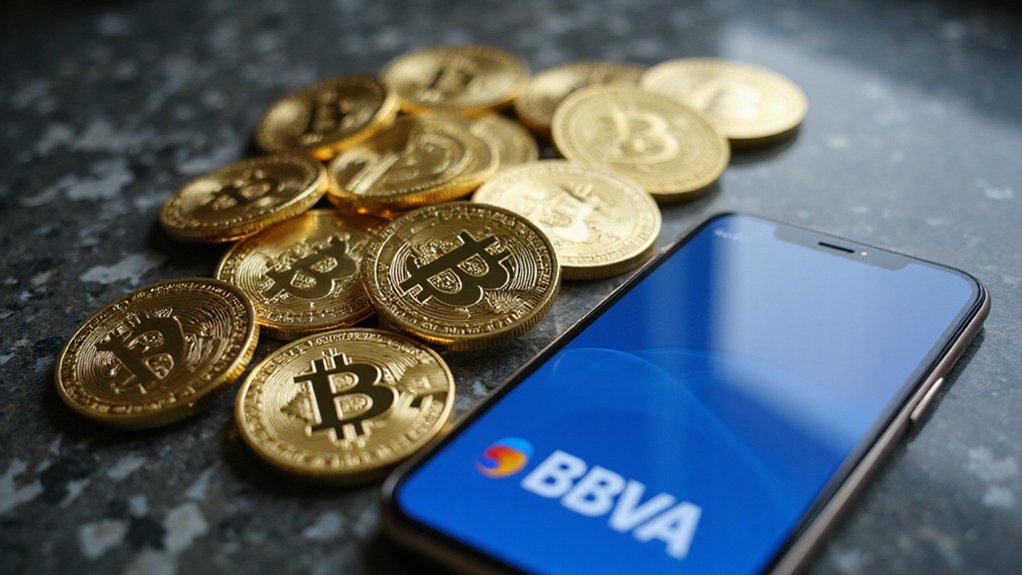Few developments in European retail banking have generated as much quiet anticipation—and perhaps regulatory anxiety—as BBVA’s decision to offer cryptocurrency custody and trading services directly through its mobile app to Spanish retail customers in July 2025.
The Spanish banking giant’s foray into digital assets represents more than mere technological innovation; it marks the first time a traditional financial institution in Spain has officially extended cryptocurrency services to retail customers. Armed with a license from Spain’s CNMV obtained in March 2025, BBVA now offers Bitcoin and Ethereum trading and custody services that comply fully with the European Union’s Markets in Crypto-Assets (MiCA) regulatory framework—a regulatory dance that many institutions have watched from the sidelines.
What distinguishes BBVA’s approach is its commitment to maintaining full control over client asset custody using proprietary infrastructure, eschewing third-party platforms entirely. This strategic choice reflects both confidence in their security capabilities and, perhaps more tellingly, an understanding that institutional credibility remains paramount when handling assets that can fluctuate wildly between breakfast and lunch.
The service’s integration with traditional banking features creates a seamless user experience that democratizes access to crypto investments without requiring accredited investor status or imposing substantial minimum deposit thresholds. Users can conduct all transactions directly through the mobile app, effectively transforming cryptocurrency from a specialized investment vehicle into another banking service—albeit one where the bank explicitly disclaims any investment advice responsibility. The comprehensive integration allows users to manage their crypto holdings alongside their savings accounts, investments, and payment services within a unified banking interface.
BBVA’s Spanish launch follows earlier cryptocurrency initiatives in Switzerland (2021) and Turkey (2023), suggesting a methodical global expansion strategy rather than reactive market positioning. The bank’s future plans include broadening its crypto portfolio to encompass stablecoins and tokenized assets, with BBVA already serving as an issuer of a euro-backed stablecoin authorized by Banco de España. This competitive landscape has intensified as over eight institutions in Spain have applied for virtual asset service provider registration, signaling widespread industry interest in crypto services.
BBVA’s measured expansion from Switzerland to Turkey to Spain reveals calculated ambition rather than opportunistic crypto dabbling.
This initiative represents a significant step toward mainstreaming crypto adoption among Spanish retail banking customers, potentially forcing competitors to reconsider their own digital asset strategies. As the crypto ecosystem continues to evolve, BBVA’s positioning aligns with the broader trend of DeFi platforms developing symbiotic relationships with traditional financial institutions.
Whether this bold move proves prescient or premature depends largely on regulatory stability and customer appetite for institutional crypto services—two variables that remain intriguingly unpredictable in today’s financial landscape.









